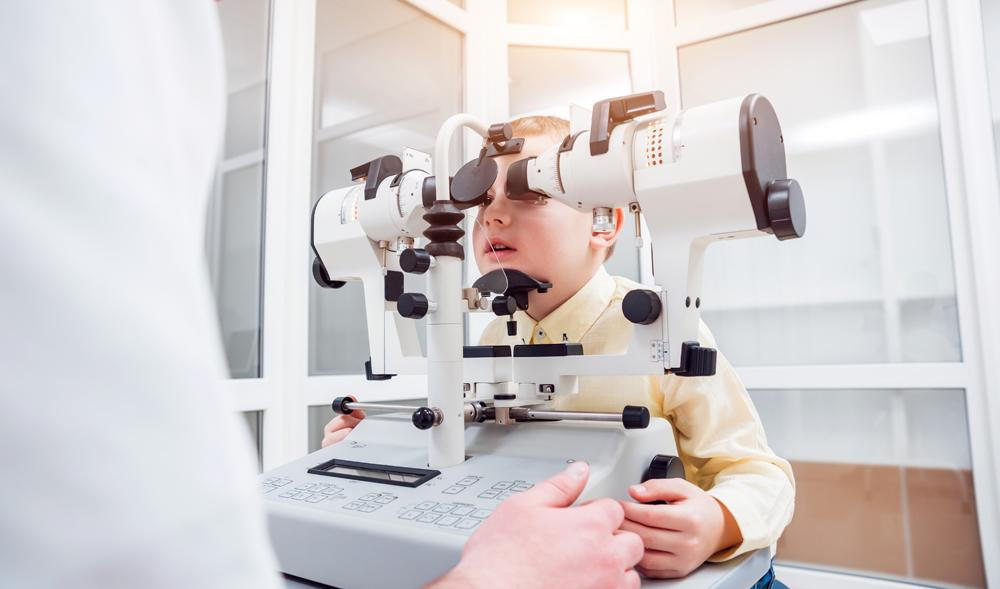Eye Center South: Leading Vision Care Specialists
Eye Center South: Leading Vision Care Specialists
Blog Article
Checking Out the Series Of Providers Available for Vision Modification
As innovation advancements and the field of ophthalmology proceeds to innovate, the range of services readily available for vision improvement has actually increased substantially. The pursuit for clearer vision is not simply about seeing far better but additionally regarding exploring the possibilities that contemporary vision modification services can use in boosting your top quality of life.
Surgical Vision Improvement Options

Non-Invasive Vision Modification Methods
Advanced technology has paved the method for non-invasive techniques that use reliable vision correction options without the demand for surgical treatments. These non-invasive approaches give choices for individuals looking for vision renovation without undertaking surgery.
Another non-invasive method is through using prescription eye declines. These drops work by briefly transforming the form of the cornea, enhancing vision for a certain duration. hearing service near me. While the effects are not irreversible, they can be beneficial for individuals looking for a non-surgical way to correct their vision
Furthermore, vision therapy is a non-invasive strategy that involves workouts and activities to boost visual skills and abilities. This technique can be specifically helpful for individuals with binocular vision issues or conditions like amblyopia. In general, non-invasive vision improvement techniques supply viable alternatives for those seeking to improve their vision without going through surgical treatment.
Implantable Lenses and IOLs
Implantable lenses and intraocular lenses (IOLs) are ingenious options for vision adjustment that use significant benefits for people seeking lasting renovation in aesthetic skill. link These sophisticated alternatives supply an effective method to address a variety of vision issues, consisting of nearsightedness, farsightedness, astigmatism, and presbyopia. Implantable lenses are operatively placed into the eye to fix refractive errors, functioning in a similar way to speak to lenses yet without the demand for day-to-day upkeep. On the other hand, IOLs are commonly used during cataract surgery to replace the eye's all-natural lens, recovering clarity and emphasis.

Corneal Improving Therapy (CRT)
Corneal Reshaping Treatment (CRT) uses a non-invasive approach to remedying vision problems with specialized methods that improve the cornea. This treatment, likewise referred to as orthokeratology, includes the usage of inflexible gas-permeable contact lenses worn overnight to delicately improve the cornea. By temporarily altering the cornea's curvature, CRT can deal with nearsightedness (nearsightedness) and astigmatism, supplying clear vision throughout the day without the requirement for glasses or get in touch with lenses.
One of the essential advantages of CRT is its reversibility; if the individual determines over at this website to discontinue the treatment, the cornea will return to its original shape in time. Additionally, CRT is a popular alternative for people that are not appropriate prospects for laser eye surgical procedure or choose a non-surgical method to vision modification. It is specifically beneficial for active people entailed in sports or line of work where wearing glasses or get in touches with can be troublesome. Regular helpful resources follow-up sees with an eye care expert are necessary to keep track of the corneal modifications and ensure optimal visual outcomes.
Advanced Laser Vision Modification
Structure on the success of non-invasive techniques like Corneal Reshaping Therapy (CRT), the field of vision correction has actually seen substantial advancements with the introduction of Advanced Laser Vision Adjustment. This innovative procedure makes use of cutting edge laser innovation to reshape the cornea, dealing with refractive errors such as nearsightedness, farsightedness, and astigmatism with remarkable precision and efficacy.
Among the essential advantages of Advanced Laser Vision Improvement is its capacity to provide individuals with quick aesthetic recovery. Several people experience improved vision nearly promptly after the treatment, with marginal pain and downtime. In addition, this advanced method provides a high degree of personalization, allowing eye care specialists to tailor the treatment to each individual's distinct visual requirements.
Furthermore, Advanced Laser Vision Improvement flaunts a high success rate and resilient results, making it a popular option for people looking for permanent vision correction. With recurring developments in modern technology and methods, this innovative treatment proceeds to enhance the lifestyle for many individuals by providing clear, crisp vision without the need for glasses or contact lenses.
Final Thought
Finally, the array of services available for vision correction includes medical options, non-invasive techniques, implantable lenses, corneal reshaping treatment, and advanced laser correction. Each of these choices uses distinct benefits and considerations for people seeking to improve their vision. It is essential for people to consult with an eye care specialist to establish one of the most suitable option based on their particular demands and preferences.
Report this page